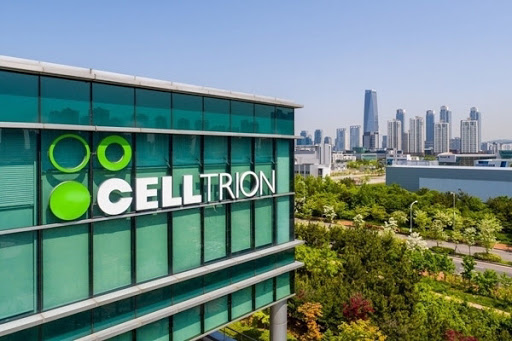Celltrion said it signed a contract with Pinot Bio, a local bioventure, and obtained the option to implement PINOT-ADC, the latter’s antibody-drug conjugate (ADC) linker-payload platform technology.

Under the agreement, Celltrion paid an upfront of 1 billion won ($701,754) and secured the right to use PINOT-ADC for up to 15 separate cancer targets, and plans to develop ADC anticancer drugs targeting solid cancer by applying PINOT-ADC technology to its pipeline candidates under development.
Pinot Bio can receive separate advance payments, milestones, and royalties for each one of the 15 options that Celltrion exercises. If all 15 technology implementation options are exercised, the maximum amount of advance payment and milestones accrued will be about $1.2 billion.
Celltrion can use the technology for one target for each option exercise for a total of 15 target option rights secured this time, and advance payments, milestones, and royalties are set separately for each option exercise.
ADC linker-payload technology has recently been attracting attention as a technology that helps combine an antibody that responds only to a specific antigen and a payload with excellent therapeutic effect, so that a drug can selectively act on antigen-expressing cells.
Celltrion stressed the therapy is receiving attention in the oncology field as the maximum therapeutic effect can be expected with minimal drug administration, and the drug can be selectively delivered to target cells.
The company expects that through this contract, it will be able to develop more various anticancer drugs.
Celltrion and Pinot Bio also signed an equity investment and joint research contract.
The two companies decided to establish a long-term partnership through equity investment and joint research contract, while focusing their development capabilities as much as possible to achieve the common goal of developing ADC therapeutics.
“Through the introduction of the linker-payload platform technology implementation option this time, Celltrion will add momentum to the development of ADC anticancer drugs, which will become the company’s next growth engine,” a Celltrion official said. “In the future, we plan to actively expand new growth engines through steady collaboration with promising biotech companies with leading technologies such as Pinot Bio.”
Celltrion has been conducting open innovation with a number of companies with the goal of securing an ADC anticancer drug pipeline over the past few years with the goal of developing various anticancer drugs.
Notably, the company signed a contract to become the largest shareholder of Iksuda Therapeutics, in June of last year.
Under the accord, Celltrion, together with the Mirae Asset Group, has signed a contract to invest $47 million (53 billion won) into Iksuda
Celltrion and Mirae Assets Group have completed the execution of half of the investment and plan to execute the other half immediately after Iksuda completes certain milestones.
If all the planned amount is invested, Celltrion will become the largest shareholder of Iksuda.
As of August, Celltrion currently holds a 17.79 percent stake in Iksuda.

